For an entire week before she saw “Black Panther,” Debra Shigley had been thrilled by the buzz the movie was receiving about the natural hairstyles the men and women were sporting.
Client after client had copies of the Afros, the dreadlocks, the Bantu knots and even the shaved heads they’d seen on the big screen, hoping their stylists could re-create them.
“The closest thing I can think of that was remotely similar was ‘Sex and the City,’” Shigley said recently.
The show featured so many hairstyles it was hard to keep up. You might remember Carrie’s grown-up bunches. Or maybe her short brunette phase. And what about Samantha’s fun wigs and sleek bob?
Hearing about and then watching the parade of different Afrocentric styles in “Black Panther,” Shigley had just one reaction: “It’s about time.”
RELATED | ‘Black Panther’: Five things to know about the movie’s ties to metro Atlanta
The former Atlanta attorney turned entrepreneur and creator of Colour, the app that delivers in-home hair services for women of color, has long been a proponent of the need to address the issues surrounding textured hair, to democratize the hair industry and create more convenient, empowering options for women of color.
“Trying to achieve a Eurocentric standard of beauty has created an environment of 50 percent of black women hiding their real hair with fake hair — sewing another woman’s hair into their own,” Shigley said. “This process is clinically proven to cause permanent hair loss, yet as a community, women of color have spent decades minimizing the effects of this particular hair practice to meet white beauty standards.”
If we’re lucky, “Black Panther” could indeed signal the end to the angst many of us feel about our hair and if we’re really lucky, the end of weaves and wigs.
“If ethnic style became more mainstream, that would be a step forward,” Shigley said. “Black women might not feel singled out when they wear braids or asked what goes into a certain style.”
If nothing else, as a woman of color and business owner, it felt good and affirming to see those styles featured so prominently on a movie screen.
Shigley, a resident of East Lake and soon to be mother of five, got into the hair business a year ago after years of frustration trying to find a salon that didn’t demand you come and stay all day.
As a 27-year-old old lawyer living in D.C. in 2007, she often spent most of Saturday at a Dominican salon, waiting her turn for a blowout. Thing weren’t much better when she moved back to Atlanta after marrying the following year.
“I’m not snooty, but was making $160,000 a year and I had no options,” she said. “It came to me there had to be a better way.”
RELATED | Atlanta-based Colour launches a pop-up blow dry bar for women of color
How was it possible, she wondered, that there is not a single nationally recognized brand like Great Clips that specializes in ethnic or textured hair?
In 2013, Shigley moved with her husband to Mexico, and while there decided to go to beauty school. Not to be behind the chair but to gain a broader perspective on what it means to be a hairstylist.
A year later, she decided to do a test run to see if an idea she had would catch on. She emailed 50 friends, recruited four stylists and flew to Atlanta to complete 20 hair appointments.
“I thought this could be something,” she said.
In 2015, the family moved back to Atlanta, and by year’s end, Shigley had begun laying the groundwork for an app that would allow clients to choose a hairstyle and book a day and time for an appointment in their homes.
“We launched it in May 2016 and have been up and running 18 months,” she said.
With the opening of “Black Panther” in theaters in mid-February, Shigley said clients began sending photos of characters in the popular movie sporting natural inspired Afro futuristic looks.
“They wanted to create the looks for themselves,” she said. “Many of my clients are involved in organizations like Mocha Moms, Jack and Jill, black sororities, and they wanted to make an evening of it. Some work in the industry, so they wanted a movie-inspired look to walk the red carpet.”
Some requested Bantu knots like Nakia, the character played by Lupita Nyong’o. Some faux mohawks with cowrie beads like those worn by the royal family. And some wanted braids like Princess Shuri, played by Letitia Wright.
“People saw themselves.” Shigley said. “That’s what was really powerful.”
But it wasn’t just the hairstyles. It was also the characters’ skin tones, which trended darker, too.
When she finally got the chance to see the movie last week, Shigley said, she was thrilled with the diversity of “beautiful hairstyles” showcased.
RELATED | Atlanta duo goes viral with photos of black girls with natural hair
“As we often say, textured hair is the most versatile type of hair, because it can morph and be styled into so many different forms, not the least of which are toggling between ultra curly and pin straight,” she said. “Black Panther” “leans in” to texture and shows the myriad ways black hair can be styled. The looks are aspirational and “Afro-futurist.”
Shigley was struck by the moment when Okoye (played by Danai Gurira) dons a wavy hair wig to disguise herself and then throws, well, a bit of shade at hair weaves.
“It’s a disgrace,” the Wakandan warrior announces. “I want to get back (to Wakanda) so I can get this ridiculous thing off my head.”
She then proceeds to toss the wig at one of her foes, knocking him off a balcony.
Perhaps now, black women will toss their weaves and wigs and go natural for good, she said.
One thing is for sure. In Wakanda, at least, so-called ethnic hairstyles are normal, not “other.”
In the city streets, extras are seen rocking curls of all shapes, various forms of braids and twists, colorful headwraps and hair accessories.
“As a black woman, you watch and think, ‘Oh, that looks cool, my hair could do that’ or ‘My hair is like that, maybe I could try that,’” Shigley said. “It’s inspiring!”
Find Gracie on Facebook (www.facebook.com/graciestaplesajc/) and Twitter (@GStaples_AJC) or email her at gstaples@ajc.com.
About the Author
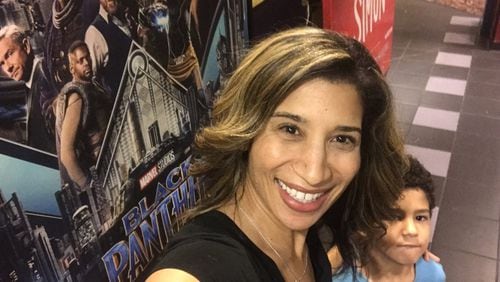
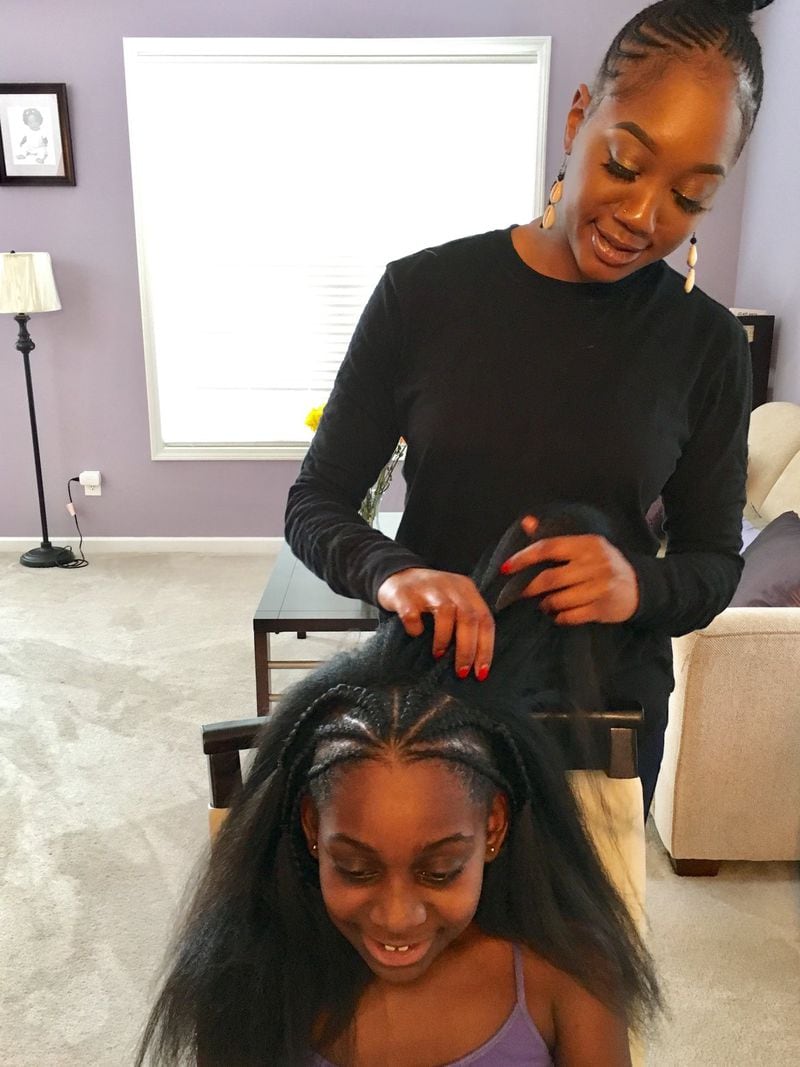
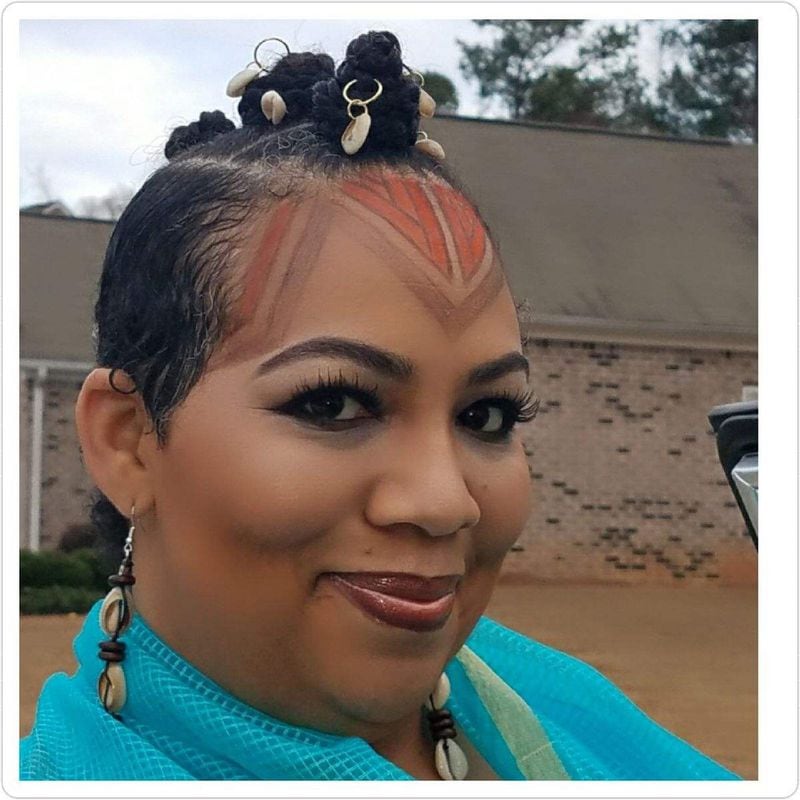
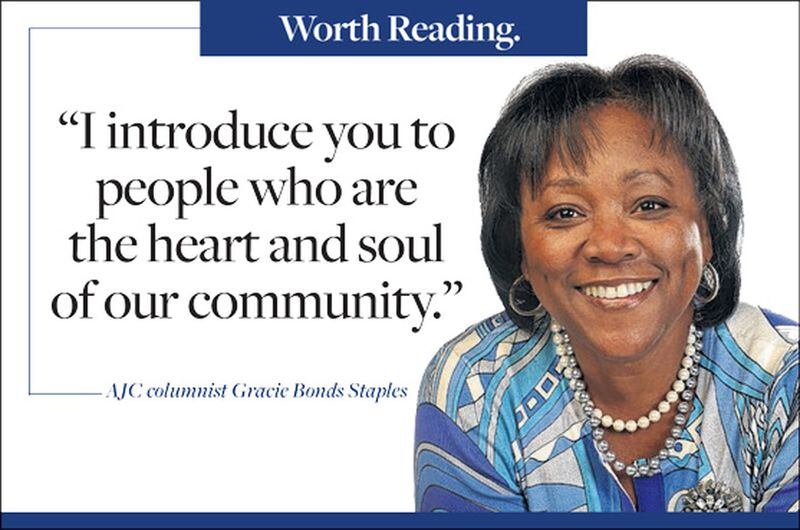
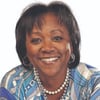


/cloudfront-us-east-1.images.arcpublishing.com/ajc/P7DYBH6TO7FEKG4SUXQQKADRXE.jpg)


